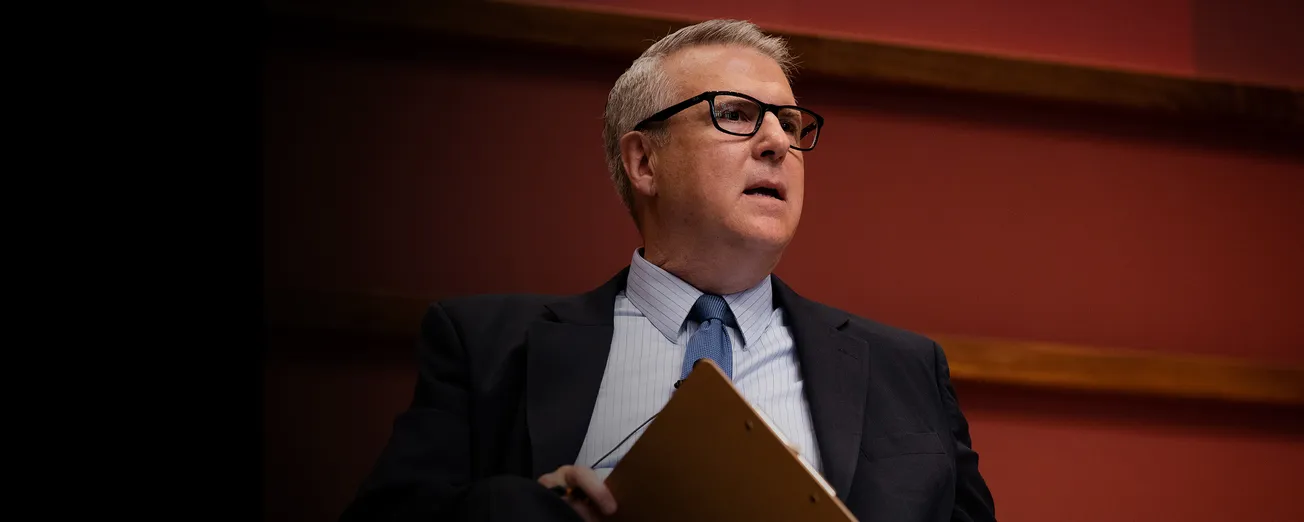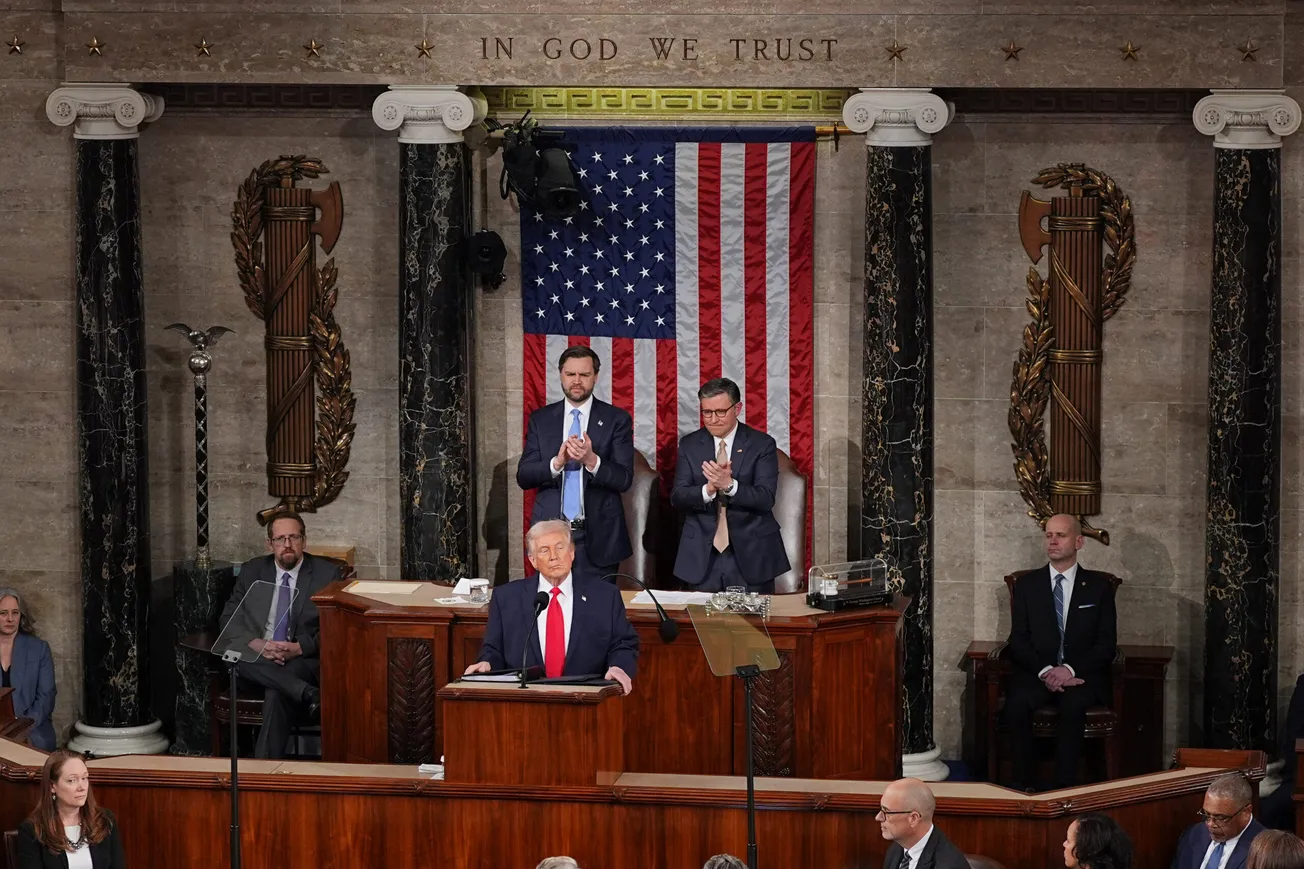Table of Contents
On November 27, 2007, Fellowship in Christ at Stanford (FICS) organized a debate titled “Does God Exist?” between atheist philosopher David Fitzgerald and Christian apologist Chang Yuon. The event was moderated by Tuese Ahkiong, director of Always Ready Ministries, a Christian group.
Despite being the apparent underdog, the atheist Fitzgerald proved a formidable debater, making plenty of wisecracks at theism in general and Christianity in particular. He said: “How much evidence would it take to convince me to believe in God? The same amount of evidence that might convince the people in this [Christian] audience to become Muslims.”
In response, Yuon did make some interesting, logical points. But it seemed that too often, he tried to counter Fitzgerald’s arguments by using religious arguments and quoting Christian writers like C.S. Lewis—not always a good tactic when debating an atheist. At one revealing moment, Yuon said: “God opened my eyes to see His revelation.” Later, in his concluding statements, Yuon ended with a number of quotes from the Bible, most notably, a reference to Philippians 2:11: “Every knee should bow, in heaven and on earth and under the earth, and every tongue confess that Jesus Christ is Lord.” In response, Fitzgerald looked unconvinced. The Stanford Daily later quoted an undergraduate student: “I am a Catholic, so I do believe in God, but to be honest I thought the atheist definitely got the better of the Christian.”
Quoting the Bible might appeal to congregations that already accept Christian premises. However, when facing an articulate atheist in an intellectual debate, the apologist’s task might be better served by making the case for faith by sticking exclusively to cold, hard reason—something that too many true believers fail to do.
This task might seem difficult at first glance, but it is quite doable. As someone who considers reason to be far more important than blind faith, I can personally think of several reasons why it might be rational to believe in God.
For example, to borrow an idea from the German philosopher Immanuel Kant, one could argue that faith is rational because the human experience has its limits. We have only five senses with which to perceive the world, and even these few senses have very limited powers. For example, there are plenty of things that the human eye cannot see (even with a microscope or telescope), and the human ear cannot comprehend infrasonic or ultrasonic sounds. In a sense, humans are blind and deaf to a great many things out there. These sensory limitations are compounded by the fact that people can only perceive up to three dimensions (length, width, and height) while traveling through a fourth (time). String theory suggests that many other dimensions may exist—dimensions that remain closed (perhaps forever) to human experience
With these human limitations, it is arguable that even if we add up everything that humanity will ever know, it probably won’t add up to even 1 percent of everything out there that there is to know. Given that so much of reality is closed to humans, there is a fair probability that some sort of unknown being (i.e. God) might exist in or beyond that great dark space.
But, an atheist might argue, why presume that God exists just because we don’t know what’s out there? Using that logic, is it not also possible to justify a belief in the Tooth Fairy or Santa Claus? Moreover, even if we presume that supernatural beings exist, how do we know which religion is the “correct” one?
One possible answer: there are no major consequences for presuming the non-existence of the Tooth Fairy or Santa Claus—neither of them promises to reward believers or punish unbelievers. Therefore, there is no payoff for belief and no cost for unbelief. Equally, some religions are premised on the idea of reincarnation. But they generally teach that a person’s rebirth is determined not by his beliefs, but by whether he lived a good or bad life. Here too, the payoff for unbelief seems minimal.
After setting aside the belief systems that do not penalize unbelief, we find that only the three monotheistic religions—Christianity, Judaism, and Islam—are premised on the stark, absolute payoffs of heaven and hell. But according to standard Jewish doctrine, non-Jews who obey the seven Noahide laws—simple prohibitions against things like murder, theft, and cruelty to animals—are assured of entering Olam Haba (the Jewish concept of heaven).
Hence, only Christianity and Islam seem to offer severe punishments for non-believers—and eternal bliss for faithful followers. Not surprisingly, they also happen to be the world’s two largest religions. Given a multiple choice question between choices A and B, where the reward for a right answer is getting into heaven, it is arguable that a rational person would make an educated guess rather than leave the question blank. Many people spend fortunes to insure themselves against improbable occurrences like diseases, ailments, accidents, and even terrorism. Whether or not God exists, what do we lose by insuring our souls against death—something that must eventually happen to all of us?
To be sure, there are some costs to believing in a religion—you have to abide by its codes. But while all religions have their own strictures, few of them are particularly onerous to the average person. The Ten Commandments, for instance, consist mainly of intuitive rules like “Don’t murder people” and “Don’t steal”—stuff that most ordinary, law-abiding people would probably follow regardless of their religious inclinations (or lack thereof). Therefore, looking at the costs and benefits of religion, it seems quite rational for the average person to submit to religion’s small restrictions on behavior, given that in return, he receives a chance of a great possible heavenly reward.
The above arguments are by no means a comprehensive defense of theism. But they rest on secular logic and do not require any faith or religious bias. There are plenty of rational reasons to believe in God, and it is possible to convince a secular-minded person to embrace religion without using a single scriptural quote. Religious apologists might consider taking this into account when debating atheists—it would at least make the debates more interesting to watch.




